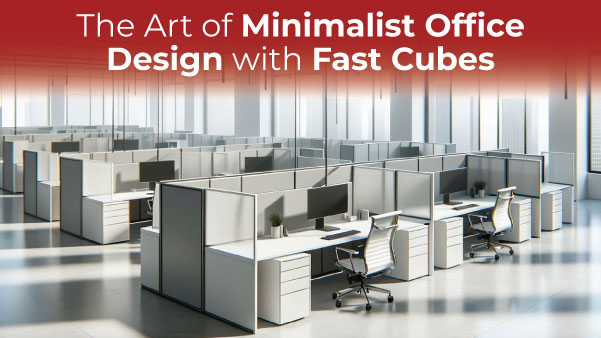How Cubicles Can Help You Achieve Work-Life Balance and Reduce Stress
Work-life balance is a topic that has gained increasing attention in recent years. With the blurring lines between work and personal life, many people struggle to find the equilibrium that allows them to excel at work while also enjoying their personal lives. One solution that has been largely overlooked is the use of cubicles in the workplace. While open-plan offices have become popular in many organizations, cubicles can offer several advantages that contribute to a healthier work-life balance and a reduction in stress. In this blog post, we will explore how cubicles can help you achieve work-life balance and reduce stress.
- Privacy and Focus
Cubicles provide a designated space for employees to work, which fosters a sense of privacy and focus. In open-plan offices, the lack of physical barriers can lead to distractions and interruptions, making it challenging to concentrate on tasks. Cubicles, on the other hand, offer a semi-private workspace, which can help employees stay on track and maintain their focus.
When you have a designated space, you can better control your environment. You can personalize your cubicle to make it a comfortable and motivating workspace. By having a designated area, you can separate work from personal life more effectively, reducing the stress associated with feeling constantly tethered to your job.
- Reduced Noise and Distractions
Open-plan offices are often associated with high levels of noise and distractions. This can lead to increased stress levels, as the constant background noise and interruptions can be mentally draining. Cubicles can help mitigate these issues by providing a physical barrier that reduces noise and visual distractions.
In a cubicle, you can control your immediate surroundings to a greater extent, allowing you to create a quieter and more focused workspace. Reduced noise and fewer distractions can lead to improved productivity and less stress, as you can complete your tasks without constant interruptions.
- Boundaries and Work-Life Separation
One of the key challenges in achieving work-life balance is maintaining clear boundaries between your professional and personal life. Cubicles support this by creating a physical boundary that signifies the start and end of the workday. When you leave your cubicle at the end of the day, it becomes easier to mentally switch off from work and transition to your personal life.
In open-plan offices, the lack of physical separation between workspaces can make it difficult to set clear boundaries. This often results in employees working longer hours and experiencing more stress as they struggle to detach from work. Cubicles, by their very design, encourage a healthier separation of work and personal life.
- Reduced Social Pressure
While socializing and collaborating with colleagues are essential aspects of a productive work environment, constant social pressure and interaction can be stressful for introverted individuals or those who need more focused, solitary work time. Cubicles provide a middle ground between complete isolation and open-plan chaos. They allow you to engage with coworkers when needed but also offer the option for solitude when it’s necessary for your concentration and well-being.
In the quest for achieving work-life balance and reducing stress, the design of the workplace can play a crucial role. Cubicles offer numerous benefits that help individuals maintain privacy, focus, and boundaries, reducing the stress often associated with the modern work environment. While open-plan offices have their advantages, they might not be suitable for everyone, and it’s essential to consider the well-being of employees when designing office spaces. By providing cubicles as an option, organizations can contribute to a healthier work-life balance and happier, more productive employees.



